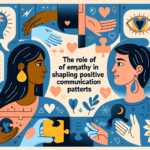
Conquering Social Anxiety: 10 Practical Tips for Everyday Interactions
Introduction
Social anxiety is more common than many realize, often leading to unexpected difficulties in everyday interactions. Whether it’s avoiding social gatherings, feeling intense self-consciousness during conversations, or fearing judgment from others, social anxiety can significantly impact one’s quality of life. In this in-depth article, we will explore "Conquering Social Anxiety: 10 Practical Tips for Everyday Interactions" that can transform your experiences from anxiety-ridden to empowering.
Imagine walking into a crowded room not with dread but with confidence. Visualize initiating conversations without the overwhelming fear of how you will be perceived. It may sound like an ambitious goal, but with practical strategies and a positive mindset, it is entirely achievable. Let’s dive into ten proven tips to help you conquer social anxiety effectively.
Understanding Social Anxiety
Before we delve into the tips, it’s essential to understand what social anxiety is. Social anxiety disorder (SAD) is a chronic condition characterized by an intense fear of social situations where one might feel embarrassed or judged. This fear can be debilitating, but acknowledging it is the first step toward conquering it.
Prevalence and Impact
According to the Anxiety and Depression Association of America, approximately 15 million adults in the United States experience social anxiety. This disorder can hamper personal and professional relationships, hinder career advancement, and diminish overall happiness. Understanding the scale of the issue highlights the importance of addressing it directly.
Tip 1: Challenge Negative Thoughts
One of the first steps in conquering social anxiety: 10 practical tips for everyday interactions is to challenge your negative thoughts. People with social anxiety often view situations through a distorted lens, convinced that every mistake will result in mockery or rejection.
Practical Exercise
Cognitive Restructuring:
- Write down the anxious thought.
- Identify the evidence that supports and contradicts this thought.
- Reframe the thought into a more balanced perspective.
Example:
- Thought: “Everyone will laugh at me if I stumble over my words.”
- Reframed Thought: “People might not even notice, and even if they do, it’s a normal human occurrence.”
Tip 2: Gradual Exposure
Prolonged avoidance only exacerbates social anxiety. Gradual exposure is the process of intentionally facing feared social situations step by step, starting with less intimidating scenarios.
Implementation Strategy
- List your fears: Rank them from least to most anxiety-inducing.
- Start small: Choose the easiest task (e.g., saying "hello" to a neighbor).
- Incrementally increase the challenge: Once comfortable, progress to the next item on your list.
Case Study: Emily’s Journey
Emily, a graphic designer, feared public speaking. By starting with small meetings where she shared her ideas, and gradually leading larger team meetings, she became confident enough to present at company-wide events. Her journey exemplifies how gradual exposure can significantly diminish fear.
Tip 3: Develop Social Skills
Improving social skills can enhance your confidence in social situations. The better you become at engaging others, the less anxious you often feel.
Practical Techniques
- Practice active listening: Show genuine interest in others’ conversations.
- Make small talk a habit: Engage in casual conversations at coffee shops or with coworkers.
Resources
Consider enrolling in a local class focused on public speaking or communication.
Tip 4: Mindfulness and Relaxation Techniques
Practicing mindfulness can ground you in the present moment, making it easier to manage anxiety in social situations. Techniques such as deep breathing, visualization, and progressive muscle relaxation can be very effective.
Quick Mindfulness Exercise
Deep Breathing:
- Inhale slowly through your nose for a count of four.
- Hold for a count of four.
- Exhale through your mouth for a count of four.
- Repeat until you feel calmer.
Tip 5: Build a Support System
Surrounding yourself with supportive friends or professionals can be vital in conquering social anxiety. They can provide comfort, encouragement, and feedback.
Strategies for Building Support
- Join support groups: Connect with others facing similar challenges.
- Communicate with friends: Share your social anxiety experiences with trusted friends who can offer their support.
Case Study: Mark’s Transformation
Mark struggled with social gatherings until he joined a local support group. The camaraderie he found there provided the encouragement he needed to face his anxiety. His experience echoes the power of community in combating social fears.
Tip 6: Limit Caffeine and Alcohol Intake
Both caffeine and alcohol can amplify anxiety levels. While some may use alcohol to cope, it can lead to more significant anxiety when it wears off.
Recommendations
- Substitute caffeine with herbal tea or decaf options.
- If consuming alcohol, do so in moderation and be mindful of its effects on your anxiety levels.
Tip 7: Plan Ahead
Preparation can minimize uncertainty, a common trigger for anxiety. By planning for social interactions, you can increase your comfort levels.
Steps to Prepare
- Know the event details: location, attendees, and agenda.
- Prepare conversation starters or topics.
- Set manageable goals for interactions (e.g., speaking to three new people).
Tip 8: Accept Imperfection
No one is perfect, and accepting that mistakes happen can free you from the pressure to perform flawlessly in social settings.
Mindset Shift
Instead of fearing mistakes, view them as opportunities for growth and learning. Remind yourself that everyone makes errors and that it’s a part of being human.
Tip 9: Seek Professional Help if Necessary
If your social anxiety feels overwhelming and significantly impacts your life, professional help can make a difference. Therapy options such as cognitive-behavioral therapy (CBT) and medication can provide relief.
When to Seek Help
If you find that your anxiety prevents you from engaging in daily activities, consider contacting a mental health professional.
Tip 10: Celebrate Small Wins
Acknowledge and celebrate your progress, no matter how minor it may appear. Every step taken towards conquering social anxiety is a victory worth recognizing.
Techniques for Celebration
- Keep a journal of your achievements.
- Treat yourself to something enjoyable after successfully navigating a challenging social interaction.
Example Celebrations
Completing an anxiety-inducing task could lead to a small reward, such as a favorite treat or an evening of relaxation.
Conclusion
Conquering social anxiety is a journey, not an overnight fix. By applying these "Conquering Social Anxiety: 10 Practical Tips for Everyday Interactions," you can reframe your experiences and approach social situations with increased confidence and ease. Remember, you are not alone in this; many have walked this path and emerged stronger.
Draw from each tip as you work towards your goal, and allow each small win to motivate you onward. With patience and practice, brighter social interactions and richer connections await you.
FAQs
1. What is social anxiety?
Social anxiety is a condition characterized by an intense fear of social situations where one feels judged or embarrassed.
2. How can I tell if I have social anxiety?
If you experience excessive fear, avoidance of social situations, and physical symptoms like sweating and rapid heartbeat in social contexts, you may have social anxiety.
3. Can social anxiety be cured?
While there’s no definitive cure, social anxiety can be effectively managed through therapy, practice, and lifestyle changes.
4. Are there medications for social anxiety?
Yes, medications such as selective serotonin reuptake inhibitors (SSRIs) may be prescribed to help manage symptoms.
5. How long does it take to overcome social anxiety?
The time varies from person to person; however, consistent effort and the application of these tips can lead to significant improvements over time.
By embracing the journey of conquering social anxiety: 10 practical tips for everyday interactions, you embrace a more fulfilling social life. Stay committed, be kind to yourself, and enjoy the process!

















